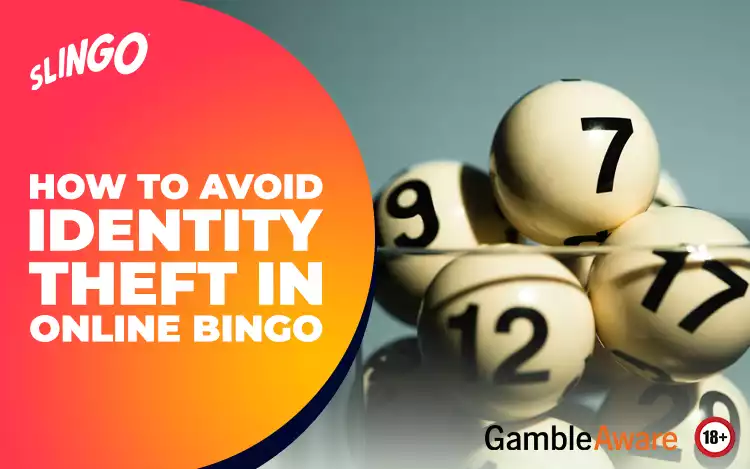In the world of online bingo games, personal safety is as important as having fun. The bingo identity theft risks are real and growing, especially as online activity increases across the UK. When engaging with online bingo games, players may unknowingly expose sensitive information. That’s why it’s crucial to understand how identity theft happens and how to avoid it. From spotting phishing scams to creating secure passwords and checking for SSL encryption, this guide helps players stay safe while enjoying bingo as a casual form of online entertainment.
What is Bingo Identity Theft?
Understanding How Identity Theft Works in Bingo
Identity theft in bingo refers to someone fraudulently using your personal details, like your name, address, or bank account, to commit fraud. On bingo sites, this can happen through weak security, fake sites, or phishing emails that trick players into sharing their credentials.
The Risks Behind It
Once a criminal has your information, they can open fake accounts, make unauthorised withdrawals, or even use your identity for other illegal activities. Even a small data breach can lead to major consequences, including financial stress and emotional frustration.
How to Identify a Safe Bingo Website
SSL Encryption
Always ensure the site has a secure connection. Look for “https://” in the URL and a padlock icon in the address bar. SSL encryption keeps your data safe by scrambling it during transmission.
Licensing and Regulation
Legitimate sites, like Slingo, display licences from recognised authorities such as the UK Gambling Commission. These regulators enforce strict data protection policies and ensure fair practices.
Privacy Policies and Terms
Read through the privacy policy. A trustworthy site will clearly state how your information is stored and used. Vague or missing policies are red flags.
Create Strong, Unique Passwords
Avoid Reused Credentials
Using the same password across multiple sites is risky. If one site is compromised, others may be too. Always use a unique password for your bingo account.
What Makes a Password Strong?
Combine upper and lower case letters, numbers, and special characters. Avoid using easily guessed information like birthdays or pet names.
Use a Password Manager
A password manager can create and store secure passwords so you don’t have to remember them. Many are available for free and add an extra layer of safety.
Watch Out for Phishing Scams
Spotting Suspicious Emails
Phishing scams often come in the form of emails pretending to be from bingo providers. They may include fake links or attachments. Always verify the sender’s email address and never click on unfamiliar links.
Fake Bingo Promotions
Watch for fake promotions or giveaways asking for personal information. Real promotions won’t ask for banking details or passwords up front. Always cross-check offers on the brand’s official site.
Don’t Share Personal Info Through Chat
Some online bingo games have social features. Never share passwords, your full name, address, or bank details in chat rooms, even with people you’ve interacted with regularly.
The Role of KYC in Identity Protection
What is KYC?
Know Your Customer (KYC) is a legal requirement where bingo operators verify players' identities. This might involve submitting documents like a passport or utility bill.
Why It Helps You
While KYC in bingo might feel intrusive, it’s there to protect both you and the operator. It ensures that accounts are authentic and helps prevent fraud and underage gambling.
Document Submission Tips
Only upload documents through official site portals. Never email personal documents unless confirmed directly with customer service through the site.
Protecting Devices and Internet Connection
Update Software Regularly
Keep your phone or computer software up to date. Security updates often patch vulnerabilities that hackers might exploit.
Use Secure Wi-Fi
Avoid using public Wi-Fi when accessing your online bingo account. If necessary, use a Virtual Private Network (VPN) to encrypt your connection.
Enable Two-Factor Authentication
Some bingo sites offer two-factor authentication (2FA). This adds a second step to your login, often a code sent to your phone, for added protection.
Responsible Play and Personal Awareness
Stay Mindful of Account Activity
Check your account activity regularly. If you see logins or transactions you don’t recognise, contact customer support right away.
Don’t Save Card Info Automatically
Although it's convenient, avoid saving card details directly on bingo platforms. Opt for secure payment gateways like PayPal when available.
Know When to Step Back
Bingo is a light-hearted way to pass the time, but it’s important to stay in control. Set time limits for yourself and don’t treat it as a solution to financial or emotional stress.
“Gambling is a pastime, not a priority.” “Only wager what you can afford to lose.”
Strategy and the Role of Luck
There’s no real strategy to winning at bingo. It’s a game of chance, and each round is random. Avoid spending more in hopes of changing your luck, outcomes are not guaranteed. Want to learn more about how luck plays a role in bingo? Check out our article on “is bingo just luck”.
The House will always have the Edge. Players should never try to recover losses by spending more. The outcome of the games is always entirely based on luck.
Conclusion: Stay Secure While You Enjoy
Online bingo can be a safe, entertaining way to unwind, especially when you're armed with the right information. Whether you're exploring colourful, theme-based online bingo games on platforms like Slingo or just getting started, knowing how to protect your identity makes the experience much more enjoyable.
Stick with licensed sites, use strong passwords, be cautious of phishing attempts, and embrace tools like 2FA and VPNs. And above all, remember:
“Gambling should be enjoyable; don’t let it take control.”
Slingo offers a responsible and secure place to enjoy bingo for fun. With a variety of themes, easy-to-navigate gameplay, and built-in safety features, it’s designed for light-hearted entertainment. Stay informed, stay secure, and remember to always Play Smart, Play Safe.











